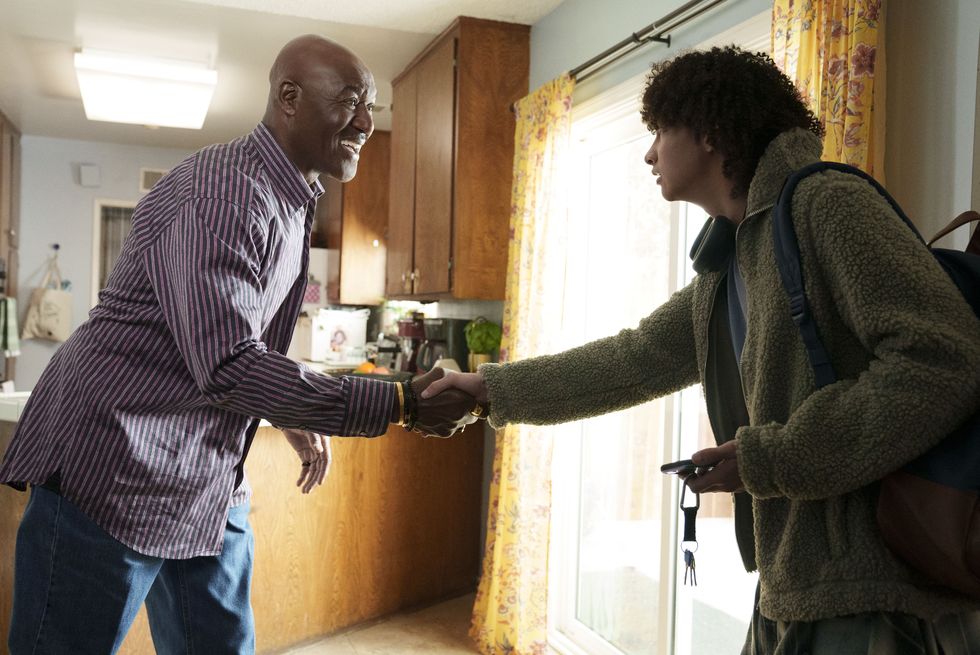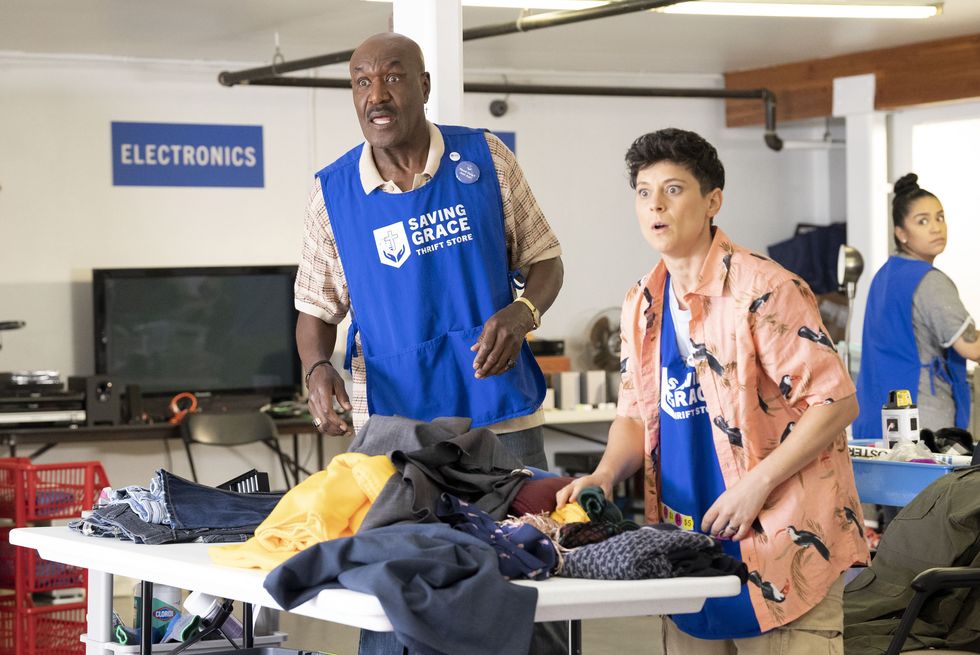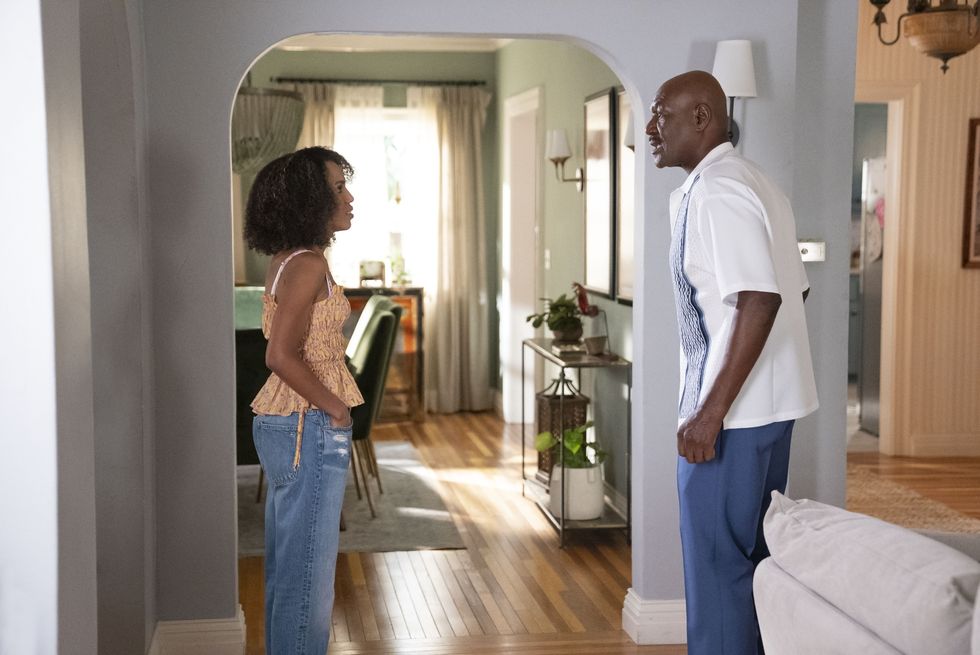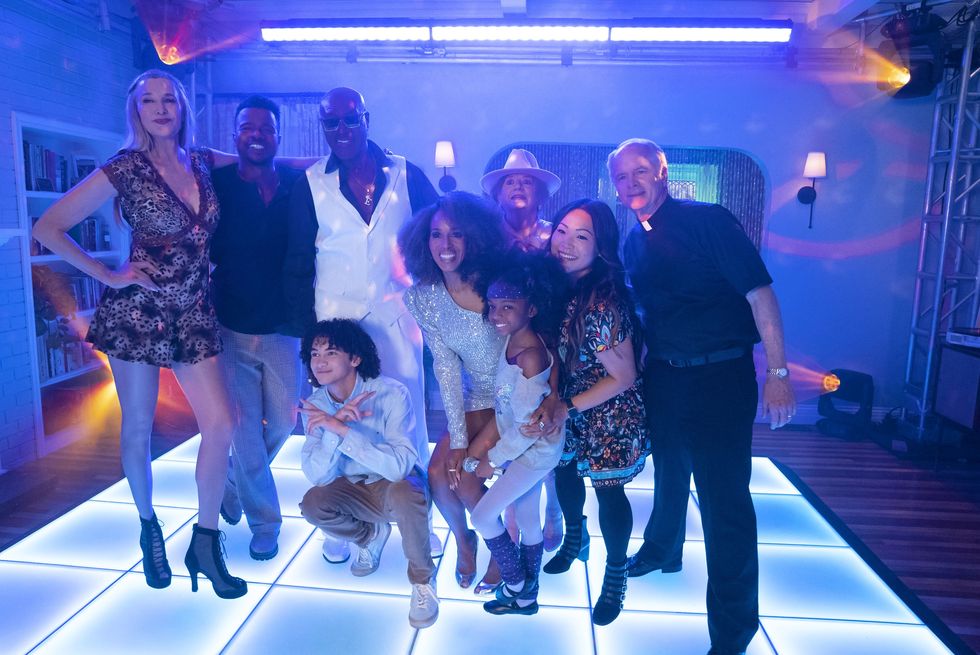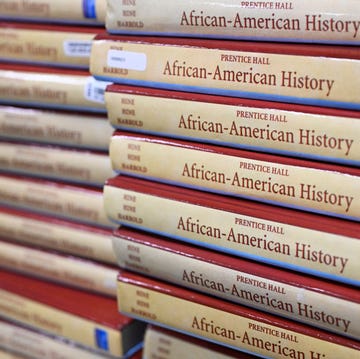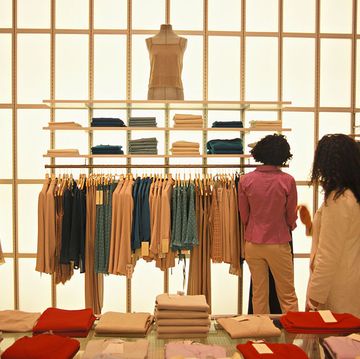“In high school, people would ask, ‘Where’s your dad?’
'Oh, he lives up north.’
‘What does he do?’
More From Harper's BAZAAR

‘Uh, he’s a cook.’
You don’t say the ‘in prison’ part, because it's too much for people, especially when you’re young. But then, I started to just embrace my story.”
Tracy McMillan is many things. She is an author, a relationship coach, a television writer and host, a mother—and she also happens to be one of the millions of Americans impacted by mass incarceration. Her memoir, I Love You and I’m Leaving You Anyway, published in 2010, recounts her layered relationship with her father amidst his long-term imprisonment. Thirteen years later, McMillan has packaged her experience into an 8-episode comedy series on Hulu called UnPrisoned, starring Kerry Washington and Delroy Lindo. The show follows single mom Paige Alexander (Washington) whose father, Edwin (Lindo), comes to live with her and her son after 17 years incarcerated.
Like McMillan, UnPrisoned is honest and full of levity. Historically, film and television—and truthfully media at-large—have skewed the realities of incarceration to benefit their own narrative; one defined by handcuffs and electric fences, made violent by labels like “felon,” “convict,” and “inmate.” These storylines generally don’t interrogate why people are incarcerated in the first place—in many instances they’re criminalized for their race, gender, relationship to mental health, and socioeconomic status. Currently incarcerated individuals are already physically separated from society, and these plot lines continue their dehumanization. UnPrisoned, however, shatters that separation. “Everything people think they know about prison, about ‘criminals,’ is wrong,” McMillan says. “I wanted to pull back the curtain and make America fall in love with a ‘career criminal’ because I think they think they couldn’t.”
And that’s exactly what McMillan does. Lindo’s Edwin is, like her late father, charming, witty, compassionate, and a myriad of other adjectives that society at-large tends to leave out when discussing the systems-involved population. Through Edwin, the show also nods to the ways in which the criminal legal system is designed to keep people incarcerated. In his reacclimatization to society, Edwin is turned away from a job as a line cook because of his background check—something that the 80 million Americans with a criminal record have likely faced, as the unemployment rate for formerly incarcerated people is nearly five times higher than that of the general U.S. population. With employment being a mandatory marker of success for his daughter (and for his parole terms), he lies to Paige to avoid disappointing her; all the while, his grandson, made aware of his inability to land the restaurant job, anxiously fibs and even saves potential opportunities on Edwin’s behalf. Edwin eventually does land a job, but between the inequitable wages, inconsiderate boss, and lack of benefits, audience members are forced to ask themselves: is this really how we expect systems-involved people to try to survive? Edwin’s options are either unemployment—an automatic ticket back to prison—or a precarious, minimum wage gig; both of which make lucrative, illegal alternatives seem perhaps the best for his survival.
Despite the obstacles placed in his path, Edwin is a comic as he fiddles with technology that has advanced significantly during his 17 years behind bars, a counselor to his daughter on her dating life, and a mentor for his grandson through the stages of nigrescence. And this is where the show is most successful: in Edwin, we see the full spectrum of humanity; in Edwin, many of us see our loved ones who have been released from prison, navigating a world that has been conditioned to unjustly reject them.
UnPrisoned’s vignettes seek to tell the full story of one family’s relationship to incarceration. And while the series is not an exact replica of McMillan’s upbringing, there are moments where she shares seeing her own feelings reflected through Washington and Lindo. She points to the first episode, when Paige waits for Edwin to walk through the door the day of his release. “I have a flashback of my childhood experience, visiting my father in prison, waiting, the door opening, and [thinking] ‘is that him?’ The anticipation was so intense,” she shares. She’d continue to wait until, finally, her father entered the visiting room: “that moment of laying eyes on him for the first time was always incredibly fearful, exciting, awkward—it was so many things—and I wanted to capture that. So when I saw that first rehearsal of [Lindo] walking out the door, it was heavy.”
For Lindo, participating in UnPrisoned continues his work with “historical correctives.” “When I did Da Five Bloods, Spike Lee put five African American men smack dab in the middle of a Vietnam narrative. We don’t get to see brothers and their Vietnam experiences,” Lindo says of the American war film he starred in back in 2020. “Then I went on to do The Harder they Fall, a Western with African descended people in the center. [UnPrisoned] is part of that.” Like much of Lindo’s work, UnPrisoned corrects a history of narratives that have no proximity to carcerality. “We live in the shadow of the prison industrial complex,” Washington shared at the Television Critics Association’s Winter Press Tour this year. “To me, [Unprisoned gave] the opportunity to [ask] ‘what are these racist institutions? How do they impact everyday lives of families? Can we do that in a way…so people don’t turn away?’”
In a world where over 2 million people are incarcerated and over 5 million children have had an incarcerated parent, the reality is that Paige and Edwin’s story depicts the less iterated side of the all-American family. Incarceration, particularly as a profitable industry, is deeply American, and we have a responsibility to confront how it is we got here (Hint: over-policing and a constitution with a slavery loophole have something to do with it). “There's nobody in the states that's not impacted by incarceration—whether they’re benefiting from or being destroyed by these systems in place,” Marque Richardson, who plays Edwin’s case worker in the show, shares. “The more we humanize it, the more we can push for a reimagining and restructuring of this whole system.” In McMillans words, Unprisoned “takes this experience from the margins and puts it in the center so that we understand.” She continues,“I really do hope [UnPrisoned] allows people to start to talk about their experience as family members or loved ones of people who have been incarcerated. I hope it can ultimately affect policy, because our policy in this country is tragic and…that’s where the healing can start.”
UnPrisoned does not purport to cover or encapsulate all that it means to have been incarcerated or have a systems-involved loved one. Instead, it seeks to demonstrate how incarceration disrupts lives and creates conversation around what healing can look like in reaction to such a gruesome system—and it does all of this while managing to create moments of joy.

